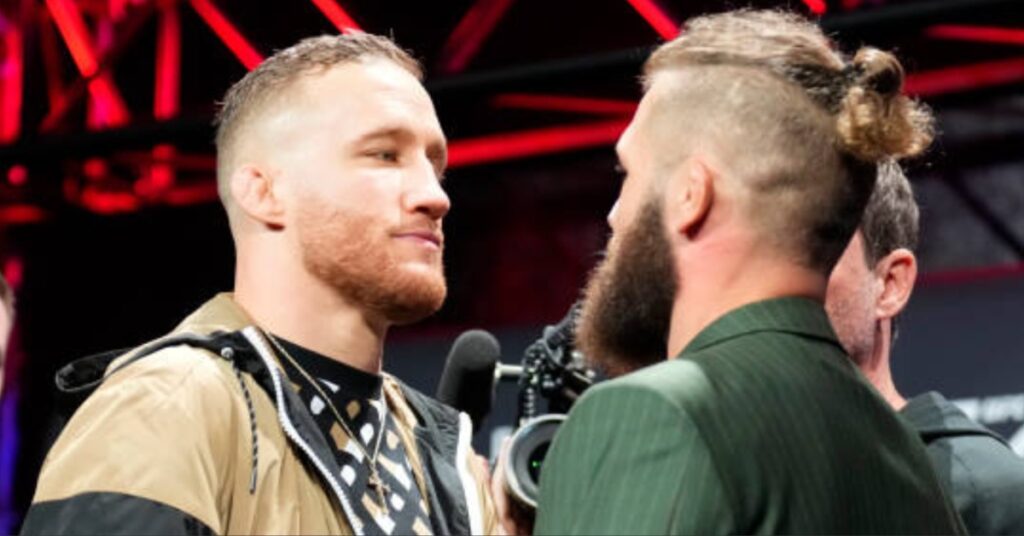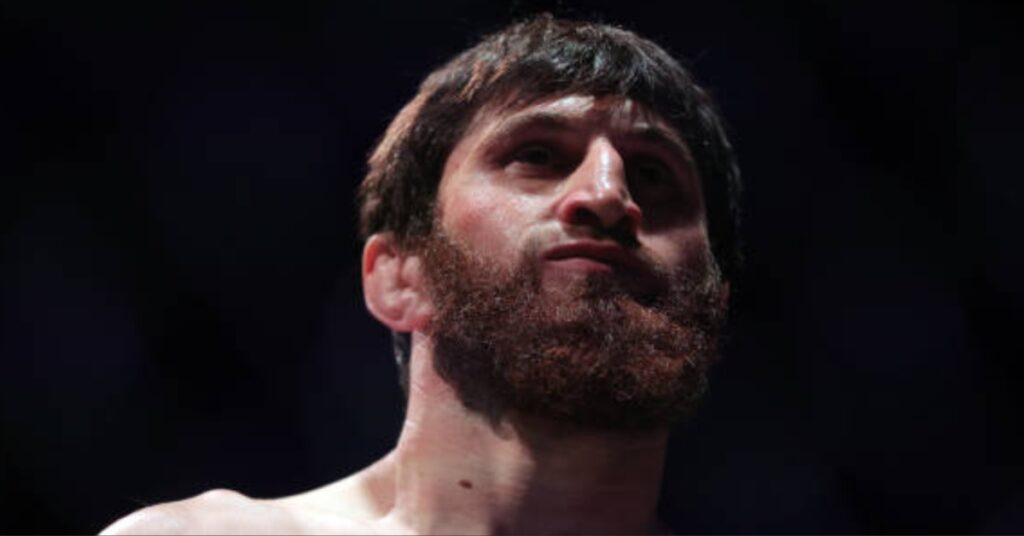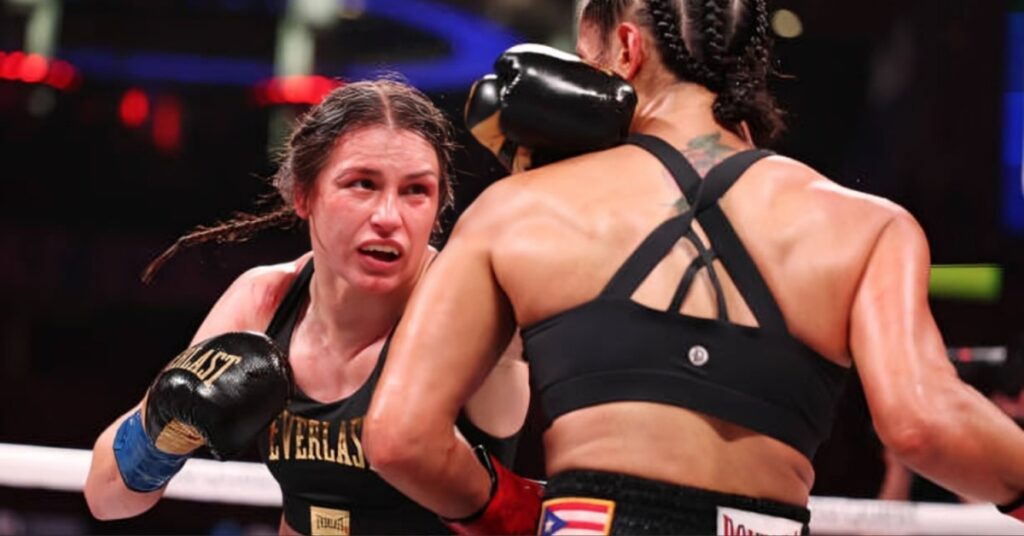Desert and Precedent
After much speculation, it was announced on Thursday by Dana White via Twitter that UFC Welterweight champion Georges St-Pierre will defend his title in a unification match against Strikeforce champion Nick Diaz. The fight will take place on October 29th at UFC 137 in Las Vegas.
The fight promises to bring ticket sales, anticipation and controversy in swathes. An immediate question mark in the eyes of many hardcore fans is this, does Diaz deserve this shot?
For the sake of discussion, I’ll assume briefly that ranking are the only factor in determining match-ups. Diaz has not fought anyone of considerable wrestling talent since losing to Sean Sherk at UFC 59 on April 15th of 2006. He is returning to a division that stands-out amongst a wrestler heavy organisation as a ‘super wrestler’ talent pool. Names like St-Pierre, Fitch, Koscheck and Hughes have occupied the higher levels of the division for a long time. On top of his lack of top wrestling competition, Diaz is coming into a title fight without having faced any of the UFC’s top five talent in a contender fight. Something that even Jake Shields with his 15 fight win streak had to do.
But is this as much of a problem as it seems? I’ll layout some reasons to think otherwise.
When the two champions meet at the Mandalay Bay on October 29th, the paths they will have traversed to reach than crossroads could not look more different.
GSP sits atop a 9 fight win streak, his dominance in the division leading to a lack of worthy title challengers. Apart for the so-called super fight with Anderson Silva, there doesn’t appear to be any obvious test for the champ. Several potential opponents come to mind (the winners of Story vs. Marquart and Conduit vs. Kim), but the UFC must trend carefully. The top 5 fighters than GSP has already defeated need opponents, giving any of them a second shot at GSP would be a hard sell. When matching up other top 5 fighters such as Fitch, Koscheck, and Shields, Joe Silva must risk whittling away the list of new opponents for GSP even further.
Coupled with the scarcity of viable match-ups, there exists the issue of the manner with which GSP has ‘cleaned out’ his division. He aims to remain in control at every stage of the fight, staying calculated on the feet, and smothering in his top control. His style is equally lauded and lambasted. Supporters argue his style counteracts his opponent’s strengths; it is their failure in being unable to take Georges into uncomfortable waters than dulls the fights. Meanwhile, critics insist GSP’s approach is too safe, his unwillingness to make mistakes leading to muted victories.
On the other path treads Nick Diaz. Boasting a 10 fight win streak since leaving the UFC in 2006, the only controversy Diaz seems to generate is in his actions outside the cage. Inside the cage, Diaz is an exciting performer, always coming battling his opponent head on, often fighting on their terms rather than his own (for evidence of this, one only has to watch his first round TKO of British bomb-thrower Paul Daley, a fight in which Diaz himself came dangerously close to being put to sleep). No matter how much one supports GSP, it’s hard to picture him coming in against a pure striker like Daley and putting on that kind of back and forth action.
The contrasts can be best summarised thus. On one side we have a champion who has dominated the best talent the UFC could throw at him, but his unwillingness to pull the trigger has put off a large amount of casual fans. On the other side, we have one of the most exciting fighters in the sport, yet he has fought a much lower level of competition.
Their contrasting journeys towards confrontation are echoed in their personalities. Softly-spoken and humble pitted against brash and confrontational. It’s a hero verses villain clash of comic strip proportions.
The fight sells itself.
Because of this, ‘deserve’ may be the wrong word to use in the first place. Match-making isn’t always as simple as pitting the number one guy against the number two guy. If it was then Jon Fitch would have received his second shot already. The reality is that such a fight would be a tough sell to casual fans, and many hardcore ones to boot. Fitch was dispatched thoroughly by GSP in their first encounter, and his performance against BJ Penn at UFC 127 hardly warrants an immediate shot. When one tries to consider other viable match-ups within the same time frame there is no other obvious answer.
Fans of GSP would do well to think of what this fight could do for him, rather than focusing on whether Diaz ‘deserves’ the shot. GSP’s stock took a fall even after beating Jake Shields, a man ranked on many pound for pound lists. As paradoxical as it seems, this is not so hard to understand when you consider the lacklustre nature of the fight, comparing what it should have been as the headline fight on the biggest UFC card to date and what it actually was. This may not be fair or just, GSP’s eye was damaged in the fight and his opponent was a major threat. But such considerations should not deny the reality of the reaction across large swathes of the MMA community.
As much as some of us may disagree with it GSP’s stock took a hit in the Shields fight, and had done so before in the jab-fest that was Decembers dispatching of Koscheck for the second time. This fight is the antidote, an easily sellable bout between two champions. Diaz may not have had much success with wrestlers in the past, but he always looks for the finish and has a ground game than GSP will have to be weary of. Also, Diaz has good enough cardio to at least remain a threat throughout the fight and resist the takedown in later rounds, something that past challengers like Penn and Alves couldn’t offer. I don’t happen to think the fight would be as one sided as some proclaim, although I do have GSP winning. Because of the threat Diaz represents, GSP is not going to be able to smother him as totally as he has done opponents in the past – GSP vs. Shields had all the hallmarks of a bad fight (a fairly two-dimensional opponent being taken out of his comfort zone), in this fight there is no obvious comfort zone for GSP to relax in. And if he reaches victory, he’ll be able to reaffirm himself in the eyes of many of his critics.
Far from interpreting it as an outcome of ‘greedy match-making’, we should view it instead as the logical option. Taking match-making for what it is, Diaz has the name, he has the fan interest, and he has the capabilities to bring out the best in GSP. The division needs time for more potential challengers to emerge; this is an interesting fight for GSP while the dust settles amongst contenders and other top 5 competitors.
Unless GSP’s fans wish to see his career jeopardised in a questionable match-up against Anderson Silva, then GSP vs. Diaz is the fight to support. The fight sets a dangerous precedent about what one needs to achieve to be eligible for a shot at UFC gold. But the fight does far more good for reasons outlined above than it does evil.
The other Strikeforce champs are either tied up in matches, have further work to do in their own divisions, or just don’t have the fan recognition to generate enough interest. Their time will come in due course. As it stands, Diaz’s eligibility for a shot is a special case, and not the rule by which the other Strikeforce champs should be treated.
The first of the unification fights is around the corner. A sign of the times for the way the sport of MMA is changing. Symptomatic of the way Strikeforce will be farmed for its top talent in the near future, and eventually collapsed so the UFC can focus on promoting its own brand exclusively. Champions will fight champions, the best martial artists striving for a truly undisputed title. The UFC will grow to have even more power in the sport than it already has; the ramifications this level of control have on the sport are a topic for another discussion. In any case, the fights most fans want will be delivered regardless and the sales will be huge.
As they say, if you build them, they will come.






